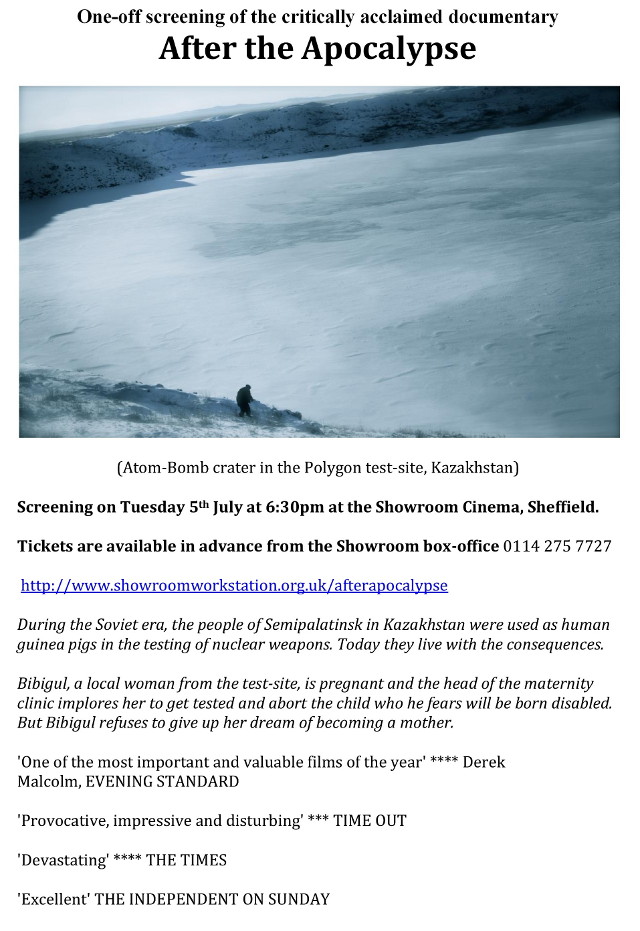It's a 65 minute documentary about a pregnant woman's battle to keep her unborn baby against the wishes of a hostile medical profession, in Kazakhstan.

Dr Toleukhan Nurmagambetov is the head of the city’s maternity clinic and wants the area's horrific cycle of birth deformities to end. His solution: a genetic passport which will prevent descendants of the original survivors carrying suspect genes from giving birth.
Bibigul is sent to Dr Nurmagambetov for further analysis, but despite Nurmagambetov’s judgement that the child will likely be born with Down’s syndrome and his pleas for her to get an abortion, Bibigul vows to keep her child. Convinced the area is in the midst of a “genetic apocalypse”, Nurmagambetov calls for the law to be changed. But are genetic policies that can only be described as eugenic really necessary? Will Bibigul’s child be born healthy or not?
The film refuses to take sides, leaving viewers wishing Bibigul and her family could have their way: let them at least be free to have their children and extend their families, whatever the risk. On the other hand, if we can prevent the creation of disabled children, should we not do that? If the idea of perfection is decided by whoever is in control, what progress can humanity make before we risk repeating the tragedy of where these ideas took us in the last century? This is the untold story of a great tragedy but leaves viewers disquieted about what should be done, both with the unexpected and long-lasting legacy of nuclear weapons, and with the power of the genetic manipulation that is at last beginning to come of age.

 Homepage:
Homepage:
